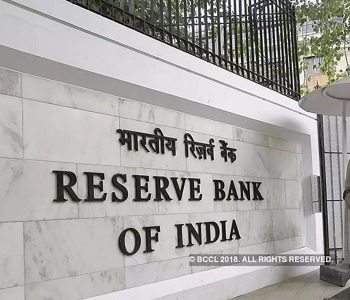Monetary policy: diverging approaches in Nepal’s current fiscal year

KATHMANDU: On Sunday, Nepal Rastra Bank unveiled its monetary policy for the current fiscal year, adopting a tight approach, contrary to expectations of a more accommodating policy to bolster the internal economy amid robust external indicators. The new policy refrains from introducing fresh initiatives to reduce interest rates, broaden credit access, or expand credit in real estate, shares, or hire purchase sectors.
Nevertheless, the policy does address some market demands by increasing the limit for residential house loans and share loans under Rs 5 million, and reducing risk burden on real estate loans from listed real estate dealers.
Despite incorporating regulations to control large loans, facilitate borrowers facing financial difficulties, and safeguard depositors’ interests, the policy curtails credit expansion compared to the previous year.
Experts argue that this cautious approach may not effectively tackle the existing economic challenges, as the demand for loans might not witness significant growth.
Nar Bahadur Thapa, an economist and former executive director of Rastra Bank, criticizes the policy as being “tight and lacking innovation.” He believes a more progressive strategy with provisions for increased loans in the productive sector would have been more beneficial for the economy.
The policy has also drawn criticism for not adequately addressing the ongoing issues faced by meter-abuse victims and problems in microfinance institutions. Additionally, there are concerns that the policy lacks support for SME financing and fails to create job opportunities.
While the monetary policy does emphasize regulations for large loans, reducing over-centralization, and preventing arbitrary loan rescheduling, business leaders and industry representatives argue that it falls short in resolving the economy’s fundamental challenges.
Rajesh Kumar Agarwal, president of Confederation of Nepal Industries (CNI), expressed disappointment in the policy’s inability to stimulate economic activities and address key issues within the National Bank’s scope.
Rajendra Malla, President of the Chamber of Commerce, highlights the limited flexibility in certain areas, pointing out that credit expansion in the productive sector remains unaddressed. The private sector had called for an additional two percent premium on the base rate in the productive sector, but this suggestion was not implemented.
In response, Nepal Rastra Bank Governor Mahaprasad Adhikari defends the policy, asserting that it aims to sustain economic activities while preserving external sector achievements.
The improved external sector has resulted in increased liquidity in the banking system, leading to decreased short-term and long-term interest rates. The governor is optimistic that these factors will help maintain internal economic activities.
The policy emphasizes increasing production capacity by mobilizing financial resources in areas where capital is generated, aiming for sustainable high economic growth while maintaining price and external sector stability. The policy prioritizes channeling financial resources to the productive sector.
In an effort to support the productive sector and achieve 6 percent economic growth, the policy reduces the policy rate from 7 percent to 6.5 percent. However, it keeps the bank rate and deposit collection rate unchanged at 7.5 percent and 4.5 percent, respectively.
The policy targets an 11.5 percent credit expansion and a 12.5 percent expansion of money supply to the private sector in the current fiscal year.
While it makes efforts to bring stability to interest rates, experts suggest that the government should control price increases caused by factors beyond Rastra Bank’s control.
Regarding foreign exchange reserves, the National Bank aims to maintain reserves to cover imports of goods and services for at least seven months during the current fiscal year.
The policy introduces provisions for loan restructuring and credit restructuring for borrowers affected by natural disasters or special circumstances.
It also proposes a review of the existing arrangements for investing loans in designated areas and obtaining a permanent account number for loans exceeding a certain limit.
The policy receives praise from economist Gopal Bhatt for its relevant and real scope of work. Bhatt considers it a paradigm shift that returns the monetary policy to its core purpose of maintaining price and external stability while promoting liquidity for the productive sector.














Facebook Comment